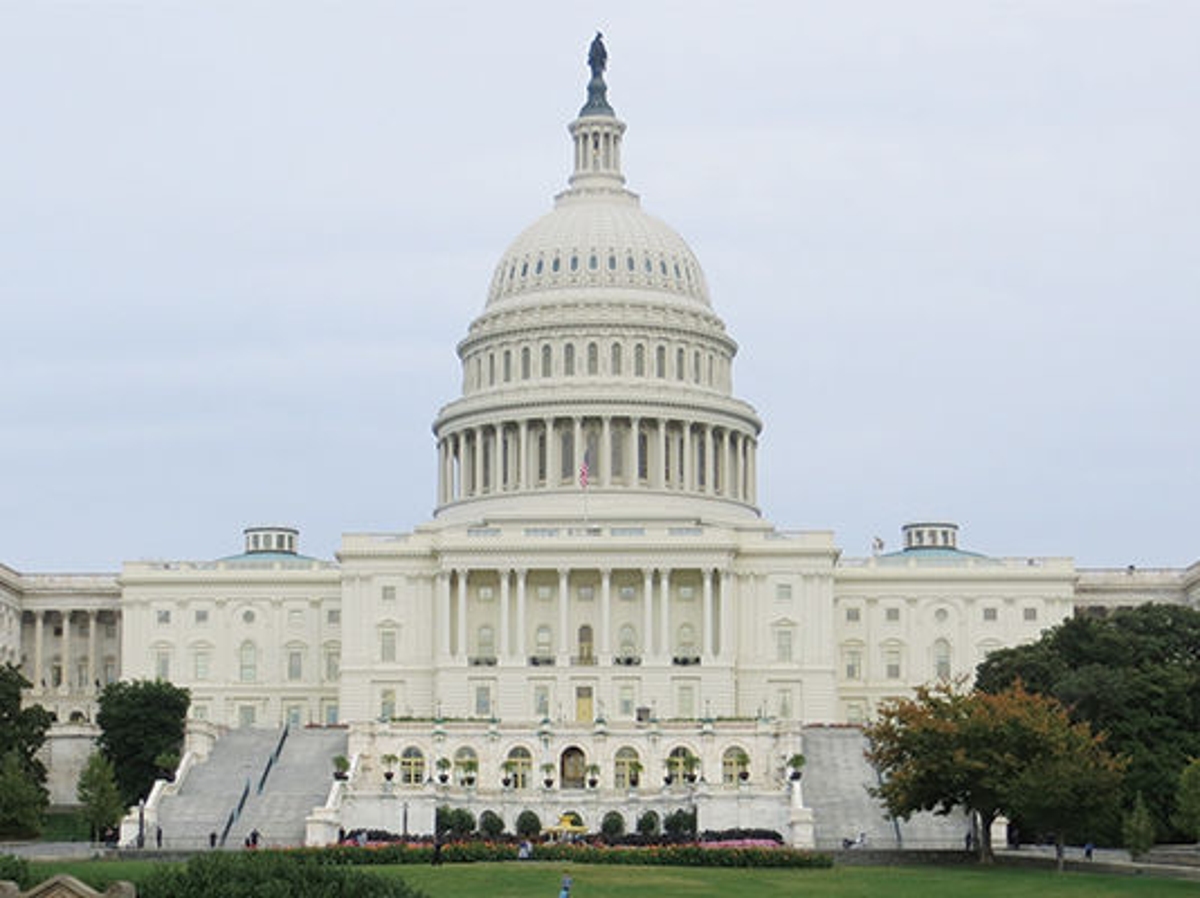Some future Capitol Hill interns are one step closer to a pay raise.
The U.S. Senate passed an appropriations bill Monday which includes a provision to fund more than 1,000 Senate internships in the next fiscal year.
The provision would allocate $5 million — an average of $50,000 per senators’ office — for Senate internships, which are mostly unpaid.
“This is huge,” said Carlos Mark Vera, the founder of Pay Our Interns, a non-profit organization that advocates for paid internships. “I’ve put a lot of tears and blood and sweat in this. It doesn’t seem real.”
[Read more: SGA backs no-excuse absentee voting and intern tax credit bills in Annapolis]
A 2017 Congressional report conducted by Pay Our Interns found that about 50 percent of Senate Republicans paid their interns while only one in three Senate Democrats did so. The report also found that an internship costs about $6,000 on average.
Vera quit his job more than a year ago to dedicate more time to the cause of internship compensation. He said that the amendment will give each senator enough money to pay their interns.
The bill passed 86-5, thanks in part to the efforts of Sen. Chris Van Hollen (D-Md.), according to a statement by Van Hollen’s office.
[Read more: UMD SGA launches transportation stipend for students with off-campus internships]
Vera credited Van Hollen, who sits on the Appropriations Committee, with gaining support for the amendment. At a fundraising dinner in February 2017, at which Vera implored Democratic congressional members in attendance to pay their interns, Van Hollen pledged to do just that.
“That hit me like a ton of bricks,” Vera said of Van Hollen’s promise. “I was not expecting him to do that. He followed through. He kept his promise.”
After the legislation passed, Van Hollen, who now pays his interns, stressed in a June 25 press release the importance of paying Congressional interns.
“Congressional interns play important roles in our offices and gain valuable experiences by participating in the legislative process,” Van Hollen said in the statement. “We are thankful for their tireless work – but we should also provide them with compensation.”
Transportation, food costs and other expenses are prohibitive for some internship applicants, said University of Maryland SGA President Jonathan Allen, who has an unpaid internship on Capitol Hill.
“By having the Senate pay their interns regardless of which state they come from, we’ll hopefully now see an increase in diversity among future Senate interns,” Allen said. “It will also open up more opportunities for students to come to DC and intern and play a role in the decision-making process and legislative process.”
The Pay Our Interns report found that eight percent of House Republicans pay their interns while less than four percent of House Democrats do.
The legislation “levels the playing field” by “allowing the best talent to come and work for the government,” said Jacob Veitch, a former student at this university, who worked in five internships during his undergraduate career, only one of which was paid.
“In the long run, by funding these internships [and] hopefully expanding to many of the executive branch agencies … [the bill will] really foster the leaders that are going to take us into the future,” Veitch said.
Veitch said without the experience he gained in his internships he wouldn’t have landed a full-time job at a consulting agency after college. “It’s hard to build that resume if it is cost prohibitive,” Veitch said. “It all feeds into each next step, but if we never give someone a first step, we’re just leaving them behind.”



